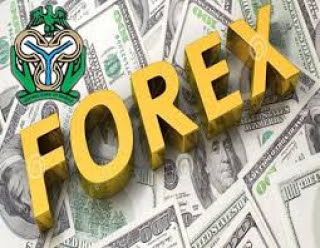Despite efforts by the monetary authorities to ensure improved value for the Naira at the foreign exchange (FX) markets over the past weeks, the local currency fell as low as N925 against the dollar on Wednesday morning at the peer-to-peer (P2P) market, before moderating to the N905/$ levels at about the noon hours.
The depreciation in the exchange rate of the Naira may not be unconnected with Monday’s JP Morgan report that put Nigeria’s net foreign exchange reserves at a worrisome $3.7 billion compared to the over $30 billion being reported by the Central Bank of Nigeria (CBN)
To meet their FX needs, most Nigerians access dollar-backed stablecoins (USDT) on the P2P market primarily for hedging and transactions as the platform enables Nigerians to convert their Naira into stablecoins denominated in dollars.
This digital payment option makes it simpler for the people, especially the tech-savvy young Nigerians, to send and receive money from abroad, buy goods and services, and process transactions more efficiently than Nigerian banks, despite the risks associated with such transactions.
In its latest report, JP Morgan projected: “Nigeria’s FX market will continue to be in focus given the true value of its net FX reserves, with an overall balance of payments deficit pointing towards continued FX pressure in the nation’s economy.
Its latest forecast is far lower than its prior estimates, due to larger-than-expected currency swaps and Nigeria’s borrowing against existing reserves.
Currently, short sellers are holding their ground against the Naira even as the volume of cash held outside banks in the country, significantly dipped from N2.26 trillion in June to N2.20 trillion in July.
As expected, the monetary and fiscal authorities are making efforts to stabilize the Naira and tackle the spiking inflation rate, with the CBN introducing sundry measures, including raising the banks’ cash reserve ratio (CRR), opening market operations (OMO), and changing the exchange rate regime.
The apex bank also announced new operational guidelines for the Bureau De Change (BDC) operations in furtherance of its drive to boost market’s participation and liquidity while the NGX is proposing the listing of dollar-denominated bonds and possibly extend the initiative into stock listing to facilitate easy access to the currency for companies in Africa’s largest economy.
Also, the Nigerian National Petroleum Company Limited (NNPCL) last week announced that it had secured an emergency loan of $3 billion from the African Export-Import Bank (Afreximbank) to stabilize the country’s foreign exchange market.
In spite of the measures, the local currency’s exchange rates at official and unofficial markets remain different despite the determination of the CBN to ensure market integrity of the country’s foreign exchange market through its recent FX rates unification policy.






